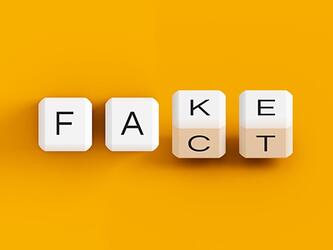Doubt my data: fake news and bogus data is giving research a bad name
In a main stage session, Ewing wanted to test whether researchers were immune to outlandish claims in a Call My Bluff-style gameshow.
“The environment is contaminated by fake news and bogus research,” he said, citing a recent example around Corona beer. It was widely reported that 38% of American beer drinkers no longer buy the brand since the Coronavirus outbreak.
Yet the reality was that 38% of US beer drinkers had never drunk Corona: those who did but no longer would, was a more sedate 4%. “It is giving research a bad name,” said Ewing.
Panellists Danielle Todd, account director at We Are Relish, Joe Glassfield, behavioural scientist at Corporate Culture and Lucy Davison, founder, Keen as Mustard Marketing each delivered an ‘insight’ to the audience across Generation Z, brand purpose, sustainability and behavioural science. Only one of the three insights on each topic was correct; the others were either made up or disproved.
Said Ewing: “The lesson is to be mistrustful about stories. Most of the ‘lies’ we presented sound credible because they fit in to a narrative we want to believe. That is valuable in its own way but that is marketing, not a market research, area.”
He cautioned: “Market research should be about what is actually true and interesting, rather that what we would like to be true and interesting.”

We hope you enjoyed this article.
Research Live is published by MRS.
The Market Research Society (MRS) exists to promote and protect the research sector, showcasing how research delivers impact for businesses and government.
Members of MRS enjoy many benefits including tailoured policy guidance, discounts on training and conferences, and access to member-only content.
For example, there's an archive of winning case studies from over a decade of MRS Awards.
Find out more about the benefits of joining MRS here.












0 Comments